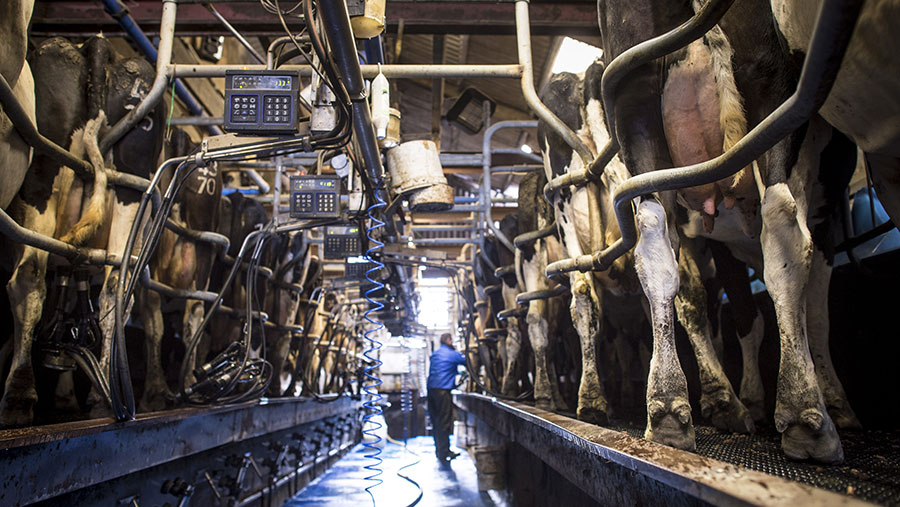Remote fault analysis could cut downtime for dairy farms
 © Jim Varney
© Jim Varney Dairy farmers have been urged to move towards remote fault analysis for high-tech milking equipment in a bid to reduce costly downtimes in modern parlours.
Speaking at a Milking Equipment Association conference in Birmingham dairy technology specialist Ian Ohnstad said breakdowns were increasingly costly as herd sizes continued to increase.
“The average UK herd size is now over 140 cows so breakdowns have greater financial implications as well as causing significant disruption to daily routines,” Mr Ohnstad from The Dairy Group, told delegates.
See also: Dorset dairy farmers build bespoke outdoor parlour
Those routines are also tighter as the larger herds and high yields limit time between milking, putting pressure on achieving a consistent, parlour performance, he added.
Mr Ohnstad said on many large-scale, high-tech operations there was not the capacity in the system to allow for a breakdown so specialist dairy farmers required a new approach to milking machine maintenance.
The average UK herd size is now over 140 cows so breakdowns have greater financial implications as well as causing significant disruption to daily routines Ian Ohnstad, dairy technology specialist
Remote consultations
“While there will always be an essential need for an on-farm parlour-testing service, farmers and technicians need to embrace innovations like remote support,” he said.
“Remote consultations offer a great opportunity for future efficiencies and the need for farmers to utilise data capture to improve parlour performance,” Mr Ohnstad stressed.
But technicians would need to have access to milking information, parlour and component performance – to analyse, diagnose and resolve problems, without a physical visit.
Act on data
So the process needed farmers to embrace a mindset that analysed and acted on the data produced by modern technology, said Mr Ohnstad.
He also said scheduled annual dynamic tests were undervalued in the UK but could help make parlours more efficient by identifying issues before they became problems.
The implications of a poorly operated machine are significant. Teat damage has health and welfare implications, can affect milk quality and also increase mastitis incidence, Mr Ohnstad warned.
Underlying problems can affect parlour running costs, which vary hugely between farms.
“Running costs range from 0.1p/litre to 0.87p/litre according to Kingshay data and farmers could make noticeable savings by simply improving the efficiencies of their parlour,” he added.
